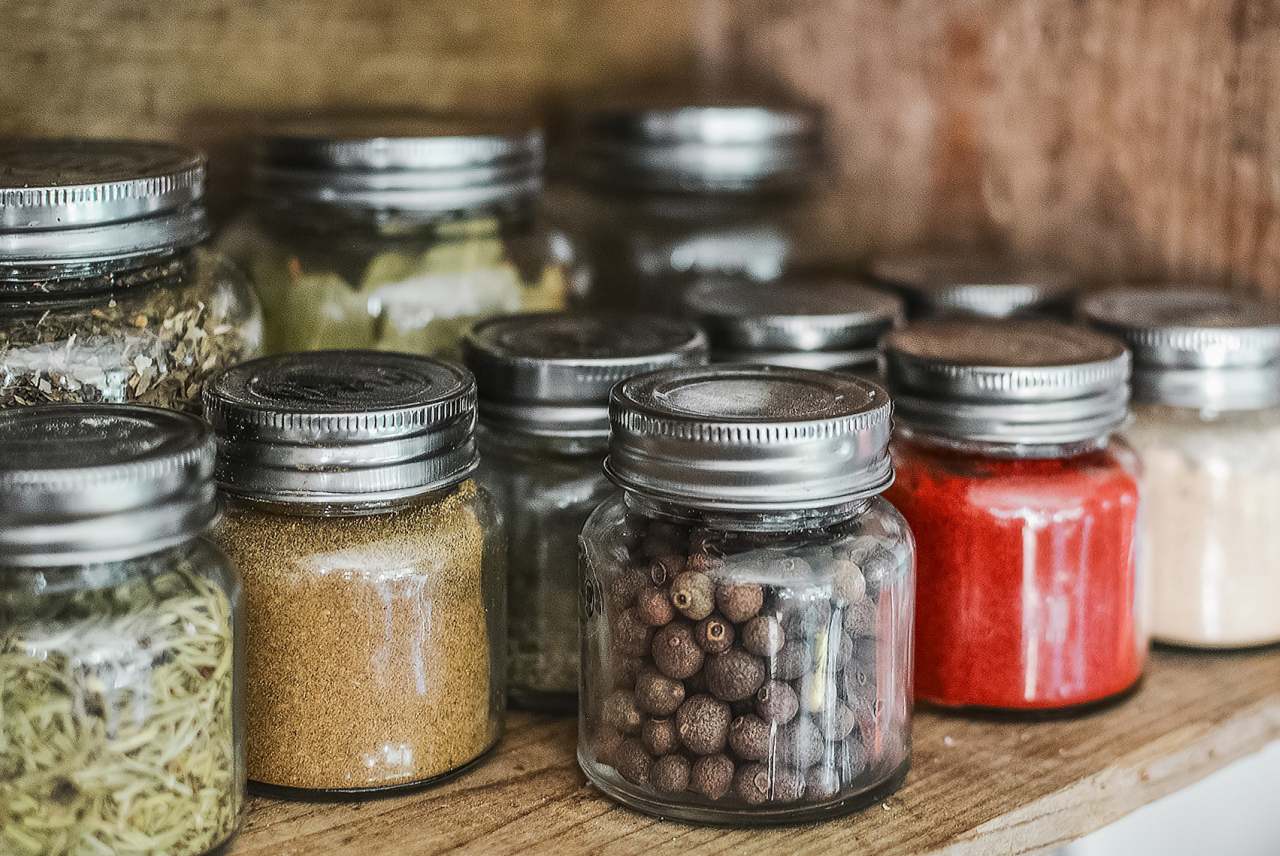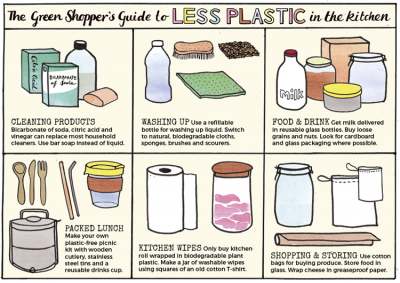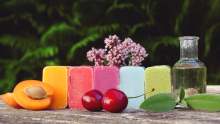Food: packaging and storage
There are lots of ways to reduce plastic waste in the choices we make about what to eat and where to buy it. It can be helpful to monitor your food packaging for a week and see what is generating the most waste. Is it that sneaky mid-morning snack habit, or the ready-made dinner from that evening you were too tired to cook? Try to think of creative solutions: keep a handy jar of nuts and dried fruit to nibble on, or batch cook and freeze your favourite soup or stew. It will save money as well as helping reduce plastic waste.
Lightweight cotton drawstring bags are brilliant for buying loose fruit and veg, grains, nuts, as well as bread and pastries. At home, store in lidded glass containers or repurposed jam jars. Take reusable containers to the market or deli counter with you: many supermarkets are happy to fill them for you. Use unbleached, compostable greaseproof paper to wrap food, or try natural waxed cloth wraps.
Switch to milk in reusable glass bottles. Many delivery services offer an organic option and will collect your empties. You can find your local milk delivery online. In some cities you can get fresh vegan milk alternatives delivered in glass bottles! Bristol has tiger nut milk available online whilst Brighton has Katie's Nuttery.
It's a popular myth that glass uses more energy than plastic due to its weight, but studies have shown that as long as it's reused enough, it's kinder to the environment.
Quit plastic containers! Lidded heatproof glass containers work wonders for storing and reheating leftovers. Round 'tiffin' tins with stacking compartments are great for packed lunches. Indian supermarkets are a good place to find stainless steel tins.
Plastic-free fruit and veg – If you can get produce from a local community garden or farm, it will save on transport-related carbon emissions as well as packaging. Otherwise, national veg box delivery services will often collect packaging with the following week’s delivery.
Hidden Plastics:
- Chewing gum – surprisingly, most chewing gum is plastic-based. Your mum was definitely right when she told you not to swallow it! If you do chew gum, it is recyclable into things like wellington boots, mobile phone covers, stationery, packaging and much more. Look out for pink Gumdrop bins at railway stations.
- Drinks cans, food tins and jar lids are often lined with a plastic resin mixture.
How compostable are compostable bags?
Our feature article looks at the rise of different types of 'compostable' bags and food packaging and helps you work out what can go in the compost, what can be recycled, and what may need to go to a specialist facility.






